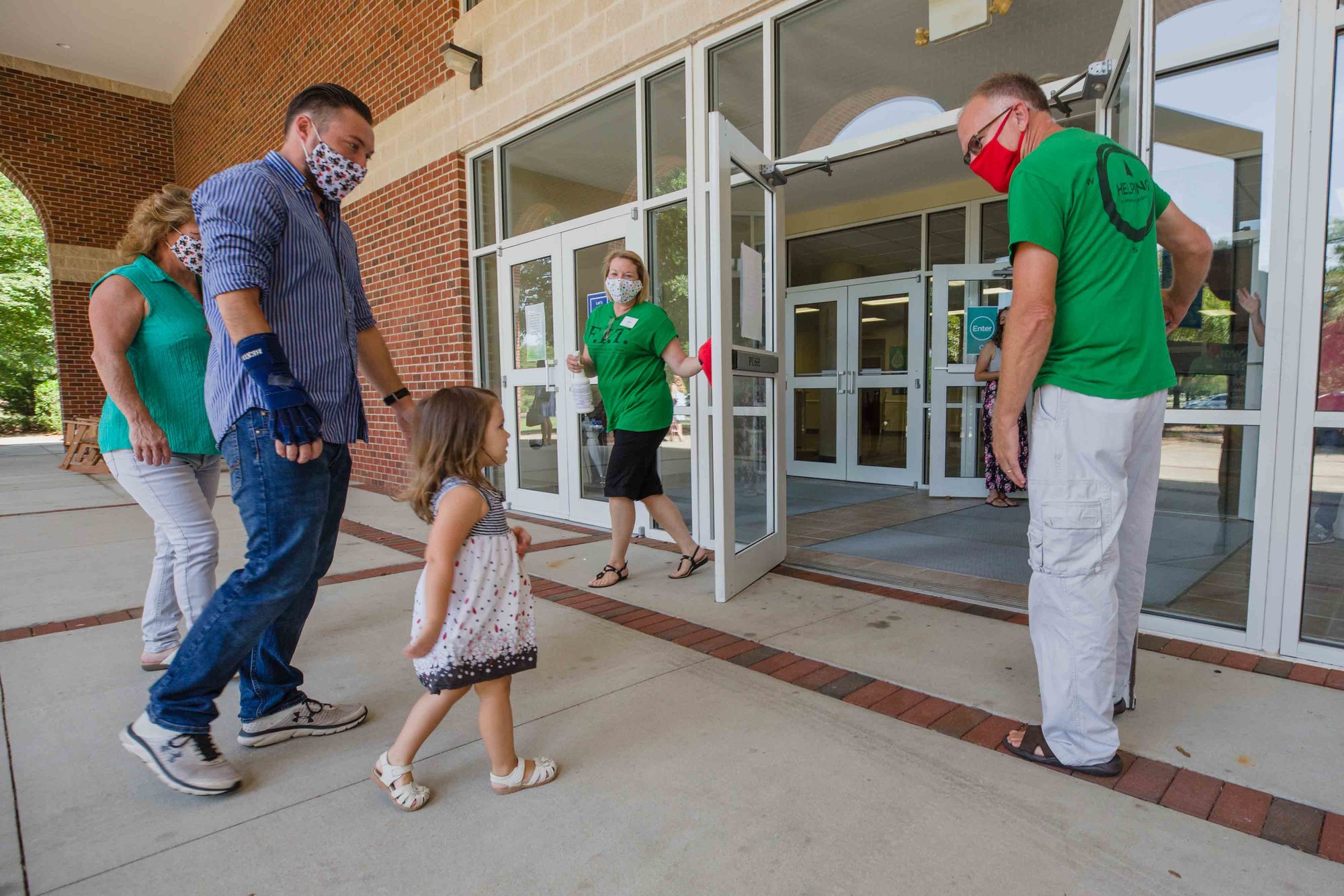As S.C. tops 100,000 virus cases, officials warn of scammers
For DHEC’s Pee Dee Region (Clarendon, Chesterfield, Darlington, Dillon, Florence, Georgetown, Horry, Lee, Marion, Marlboro, Sumter and Williamsburg), call (843) 915-8886.
kayla@theitem.com
All our coronavirus coverage is free to the public. It’s the right thing to do as a public service to our community. If you find this article helpful or informative and want to support our continued coverage, please subscribe or support us with a tax-deductible donation.
To find all our coronavirus coverage, including helpful local resources and website links, click here.
---
South Carolina has reached another milestone amid the coronavirus pandemic with now more than 100,000 people having tested positive.
Monday’s daily update from the state Department of Health and Environmental Control show the number of new cases per day statewide continues to drop from a mid-July peak. With 718 new cases announced Monday, the state has now reported 100,431 positive test results.
There has been only one day before Monday with less than 1,000 new cases reported since June 23.
The percent of tests that came back positive Sunday was 12.8%, also a lowering of the data point health officials have said needs to drop to indicate the virus’ spread is slowing and under control.
With Monday’s daily update came another 17 deaths attributed to COVID-19, bringing the death toll statewide to 1,966.
According to DHEC data, Sumter County has had 2,536 residents test positive for the virus, and 49 have died. The state has reported 844 cases and 50 deaths in Clarendon County and 566 cases and 29 deaths in Lee County.
As the state broke the 100,000-case count, public health and elected officials urged South Carolinians to be aware of people trying to take advantage of the pandemic.
DHEC said Monday South Carolinians should respond to legitimate contact tracers calling and emailing those who have tested positive for COVID-19 but cautioned against scammers.
If you test positive for the virus, a contact tracer will call you, the state department says, and they will:
- Connect you to medical care and help you find resources and support if needed;
- Ask about places you have been and the people you have spent time with recently;
- Make sure the information you provide is kept confidential and not shared with others;
- Call the people you recently were in close contact with (someone you have been within 6 feet of for at least 15 minutes) and let them know they have been exposed to COVID-19; and
- Inform your contacts about what they need to do during the next couple of weeks to take care of themselves and others.
A contact tracer will not:
- Ask about your immigration status or share your information with immigration officials;
- Share your name or personal information with any of your contacts;
- Ask for your Social Security number, money, bank account or credit card number; or
- Threaten consequences for not participating or answering questions.
If you’re concerned about whether a caller is a real DHEC official, verify his or her identity by:
- Asking him or her to send you an email. The email should end with @dhec.sc.gov; and
- Calling your DHEC regional epidemiology office to confirm the caller’s name and credentials.
While some are posing as contact tracers, other scammers are posing as elected officials and other public figures.
U.S. Sen. Tim Scott, R-SC, said in a news release Monday he was made aware of an instance where someone posed as the senator and offered “emergency grant dollars” in exchange for a percentage of the promised amount.
These scammers are using WhatsApp or Gmail accounts to reach their targets and have reportedly asked for anywhere between $450 and $10,000 in exchange for a larger amount later.
More Articles to Read

